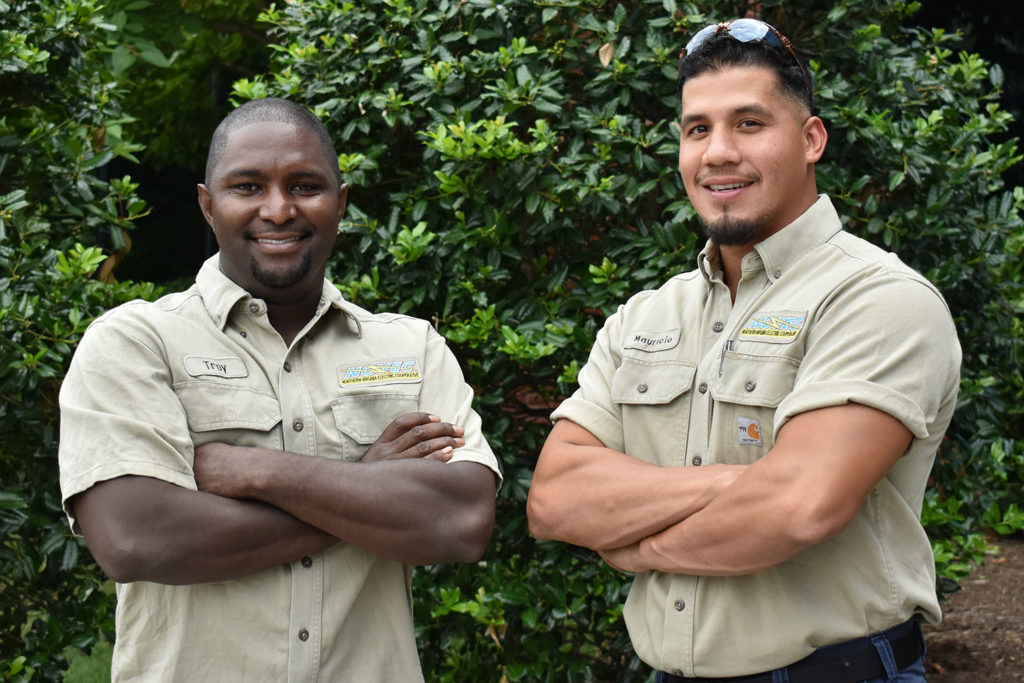
What would you do if you saw a stranger in distress?
For two lineworkers at Northern Virginia Electric Cooperative in Manassas, it was no questions asked when they saw a woman kneeling by her car in the median of a busy intersection, crying and holding an infant.
Mauricio “Mo” Paz, a third-year apprentice, was driving a co-op service truck, and Troy Price, a journeyman-lineman, was in the passenger seat. “We jumped the curb and put on the flashers,” said Paz. “My first thought was that there was a car accident, but I didn’t see any wreckage.”
Instead, there were a few bystanders; one was calling 911 and the other was comforting the mother.
“We could just tell by the look on her face that something was wrong, that the baby’s life was in danger,” said Price.
“Honestly, we thought the baby was gone. The baby was completely blue and appeared to not be breathing,” said Paz, who tried to comfort the mother and move the baby’s limbs to get a response. “The mother was hysterical and crying, ‘Don’t let my baby die.’”
By now, a crowd had gathered, and Paz asked bystanders to help determine if there was a doctor present in nearby traffic. Because paramedics hadn’t arrived yet, Paz called 911 again and described the infant’s condition.
“The dispatcher asked if we knew how to do CPR,” said Paz. “I told her we were certified in CPR for adults, but not for a tiny baby. She said, ‘I can walk you through it.’ I told her we were ready to do whatever it took to save the baby’s life.”
The dispatcher asked if they had access to an automated external defibrillator (AED), and Paz told her the crew kept one in the service truck. While Price ran to get the equipment, Paz’s thoughts turned to another matter: cooling off the baby in the sweltering heat. He asked another bystander for a bottle of water, which he splashed on the baby’s face, feet and fingers.
At that point, Paz said, the baby gasped for air. “We were just trying to keep the baby active,” he said.
Price returned with the AED but, by then, first responders arrived and took the baby to the hospital. A few weeks later, the crews learned that the baby had lived and that doctors had diagnosed a congenital heart defect. “We were so happy,” Paz said.
Both men credit regular safety training at NOVEC for giving them the wherewithal to handle the July 12 incident.
“Lori Spence [NOVEC’s safety director] told us during a training that a lot of times when accidents occur, people rely on others to do something. Even if they know CPR, they freeze, and they expect someone else to help,” said Paz, noting in this case, “everyone was just stunned. The baby was literally dying in its mother’s arms.”
That’s why the co-op is calling the two men heroes, said Priscilla Knight, NOVEC’s senior communications specialist.
“While the crews didn’t administer CPR, it’s clear they would not have hesitated should it have been called for,” said Knight. “They were ready to start just before the first responders arrived. I think taking control of an emotional situation, preparing to save the baby, and calming down the frantic mother makes our line techs heroes and good Samaritans.”
Victoria A. Rocha is a staff writer at NRECA.